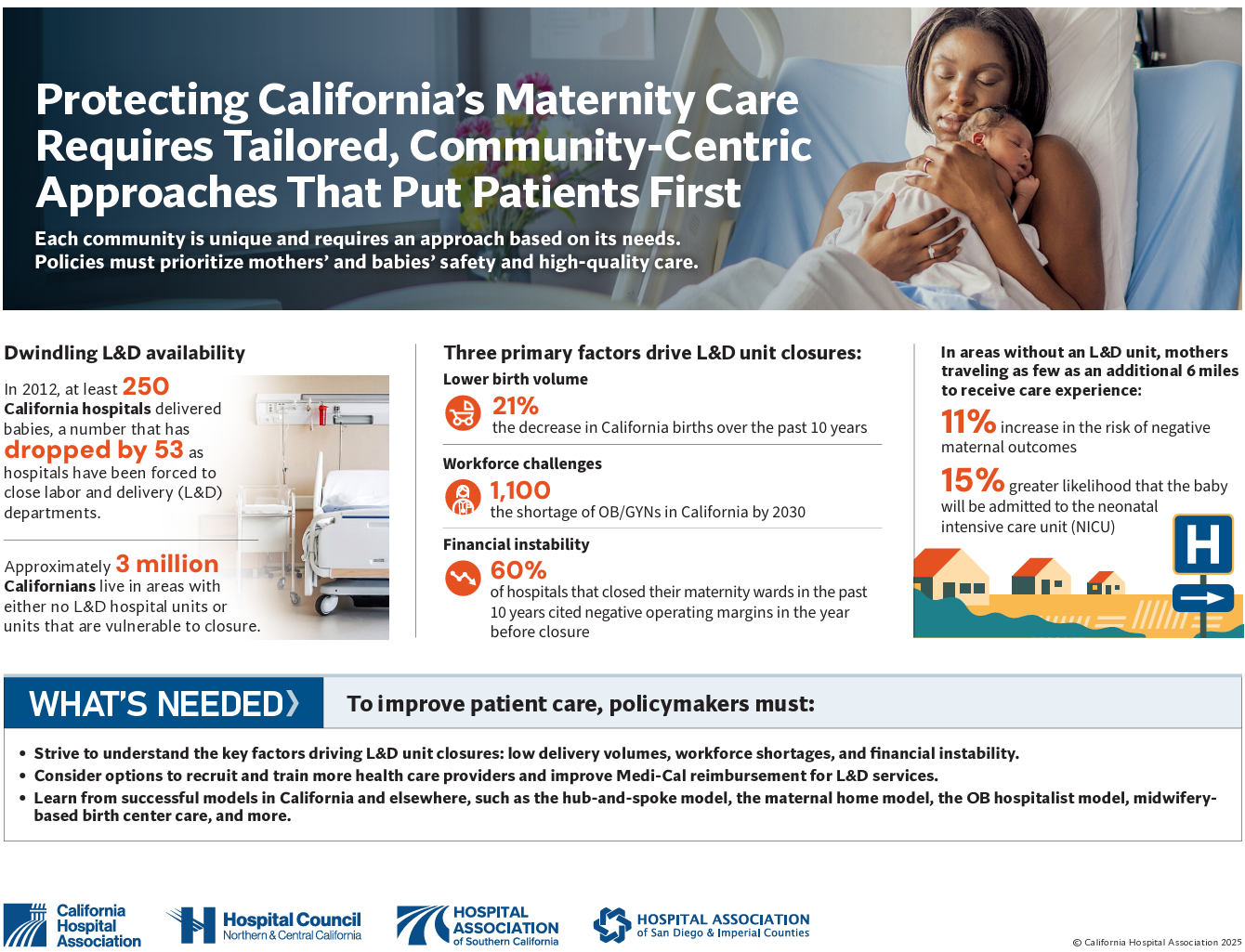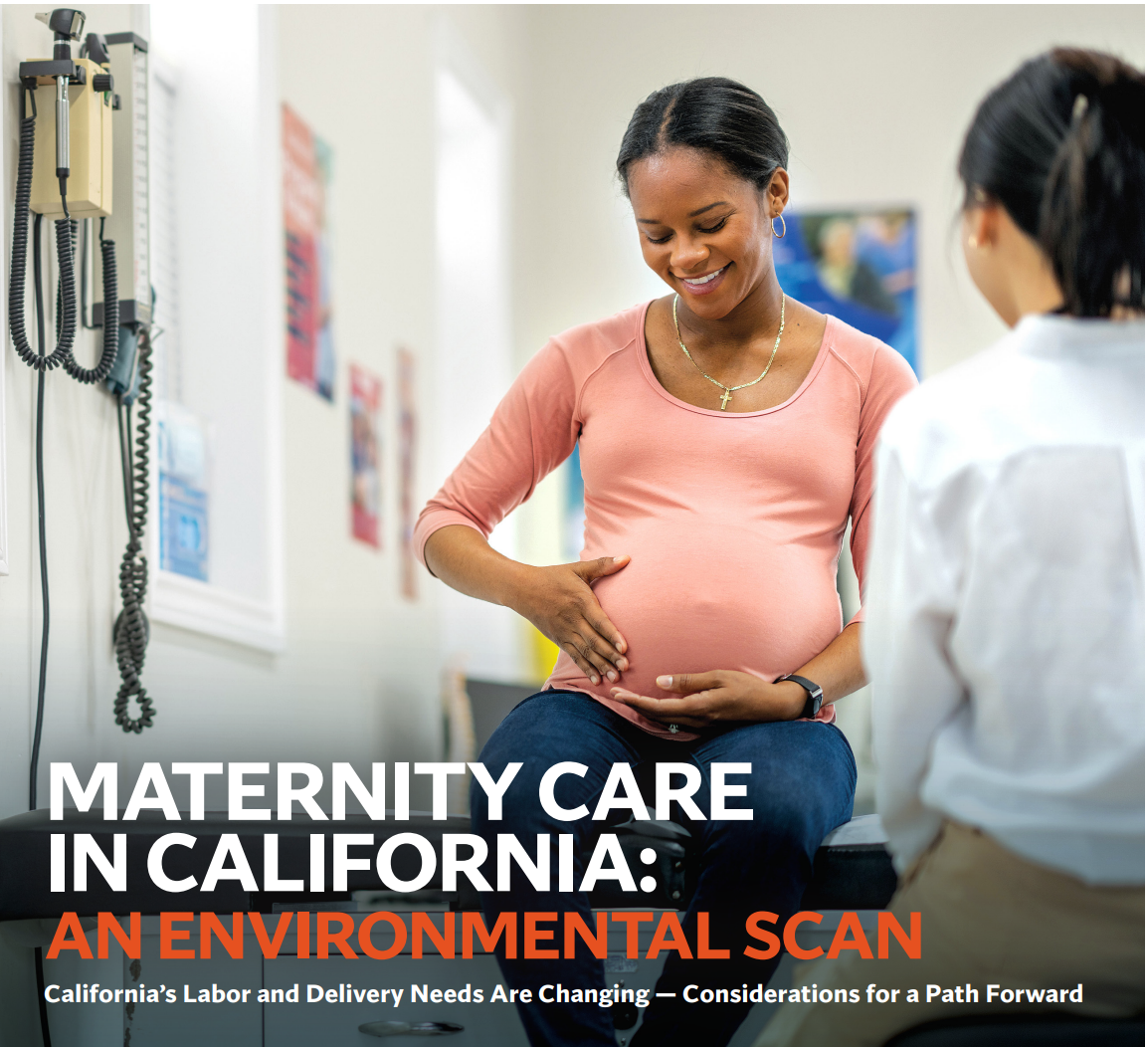About Maternal Care
California’s labor and delivery (L&D) needs are changing. Over the past decade, the state’s birth rate decreased 21% and 50 hospital L&D units closed. This, coupled with disparities in health outcomes for Black mothers, has placed maternal health in California in the spotlight.
Hospitals are developing innovative approaches to providing maternity care, recognizing that access is key to improving outcomes and reducing disparities — but there is no one-size-fits-all approach. Charting a path forward on this complex issue requires considering a community’s unique needs, including access to facilities and clinical specialists, availability of prenatal and perinatal services, the distance patients must travel to receive care, and more.
CDPH Issues New Guidance to Support Doula Access in Hospitals
What’s happening: The California Department of Public Health (CDPH) released All Facilities Letter (AFL) 25-13 on March 24 that offers guidance to hospitals on supporting the Medi-Cal doula benefit — available since January 1, 2023 — and outlines recommendations for patient visitation policies and procedures.
Issue Brief: Protecting Maternity Services in California
Current California standards require health plans to ensure that their enrollees have timely access to medical care — such as being within 15 miles or a 30-minute drive from a hospital. Unfortunately, many people covered by Medi-Cal still face significant hurdles to access care.
Key Messages: Protecting Maternity Services in California
Approximately 3 million Californians live in areas with either no labor and delivery (L&D) hospital units or units vulnerable to closing. When an L&D hospital unit closes, moms and babies experience worse health outcomes.
Infographic: Protecting California’s Maternity Care

Maternity Care in California: An Environmental Scan

Registration Opens for DHCS Birthing Care Pathway Webinar
What’s happening: On March 4, the Department of Health Care Services (DHCS) is hosting a webinar from 3-4:30 p.m. (PT) to discuss the Birthing Care Pathway, a comprehensive policy and care model roadmap to address racial and ethnic disparities throughout the journey of pregnant and postpartum Medi-Cal members — from conception through 12 months postpartum. Registration is open.
What else to know: The goals of the roadmap are to reduce maternal morbidity and mortality and address these significant disparities in maternal health outcomes among Medi-Cal members who are Black, American Indian/Alaska Native, and Pacific Islander.
CHA Report Finds Labor and Delivery Closures Driven by Three Factors
What’s happening: Maternal health care is in the spotlight both nationally and in California, with a focus on declining birth rates and improving equitable outcomes. A new report from CHA centers on one aspect of access to maternity services: factors driving the decline in hospital-based labor and delivery unit availability.
What else to know: The report, Maternity Care in California: An Environmental Scan, describes various approaches in California and other states to help policymakers understand that addressing this complex issue requires flexibility and consideration of a community’s unique needs — and that any path forward must prioritize mothers’ and babies’ safety and emphasize high-quality care.